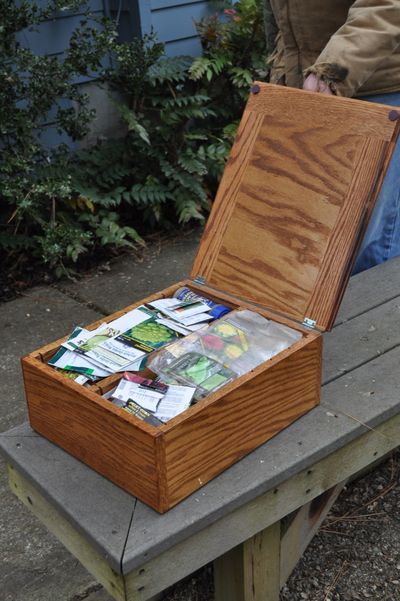Gardening: Choose proper seeds for the best harvest

It won’t be long now before the seed racks will start appearing at garden centers, nurseries and grocery stores. The garden catalogs have been laying on the reading stack since early December. With so many choices, how do you determine what to buy? Not all seeds are created equal.
For beginning gardeners, it’s better to start with a few well-chosen varieties you and your children like. This last point is important to your success. Children are attracted to gardening if for no other reason than they get to play in the dirt. Let them help pick their favorite vegetable to grow and you have a win-win situation.
Radishes and lettuce are good, fast-maturing crops to get them interested quickly. Sugar pod peas are a good choice because they can pick them right off the vine and eat them. Carrots and tomatoes are the late summer favorites. Let them help prepare them for dinner and I can almost guarantee that will be the first thing that disappears off their plate.
Pick varieties that are easy to grow and are for a short growing season. A few of these include lettuce, spinach, peas, bush beans, carrots, radishes and corn. It might be lots of fun to buy or order every variety of seed that catches your fancy, but it can be very frustrating for a beginner to keep track of everything. Besides, there are only so many plants that can fit into a given garden space. Talk to other gardeners, the Master Gardeners or the staff at your favorite garden store for recommendations.
Expect to pay a fair price for quality seed. It might be tempting to buy inexpensive dollar packs of seed instead of the $2 to $3 packs of name-brand seed, but consider this: The higher-priced seed will likely have a higher and more consistent germination rate, larger seeds and fewer broken seeds. Good seed companies use quality growers to produce their seed, clean and sort out the largest seed and test them for germination rates. They will label packages with detailed planting instructions and the year they are packed for; in this case, 2014. My favorite places to buy seeds are from our locally owned garden centers and nurseries. My favorite Northwest-based seed catalogs include Ed Hume Seed, Territorial Seed, Irish Eyes and Nichols Garden Nursery. I also like Johnny’s Selected Seed because they specialize in short-season varieties and the catalog is almost as much a gardening reference manual as a seed catalog.
It is inevitable that you will buy more seed than you can use. Most seeds will remain viable for several years if stored properly. Keep the seed in the original package and store the packets in a rodent-proof container in a cool, dry place. I store mine in a wooden box with a heavy lid in a cupboard in the garage. So far the mice haven’t had a feast. A cool room or basement will also work.